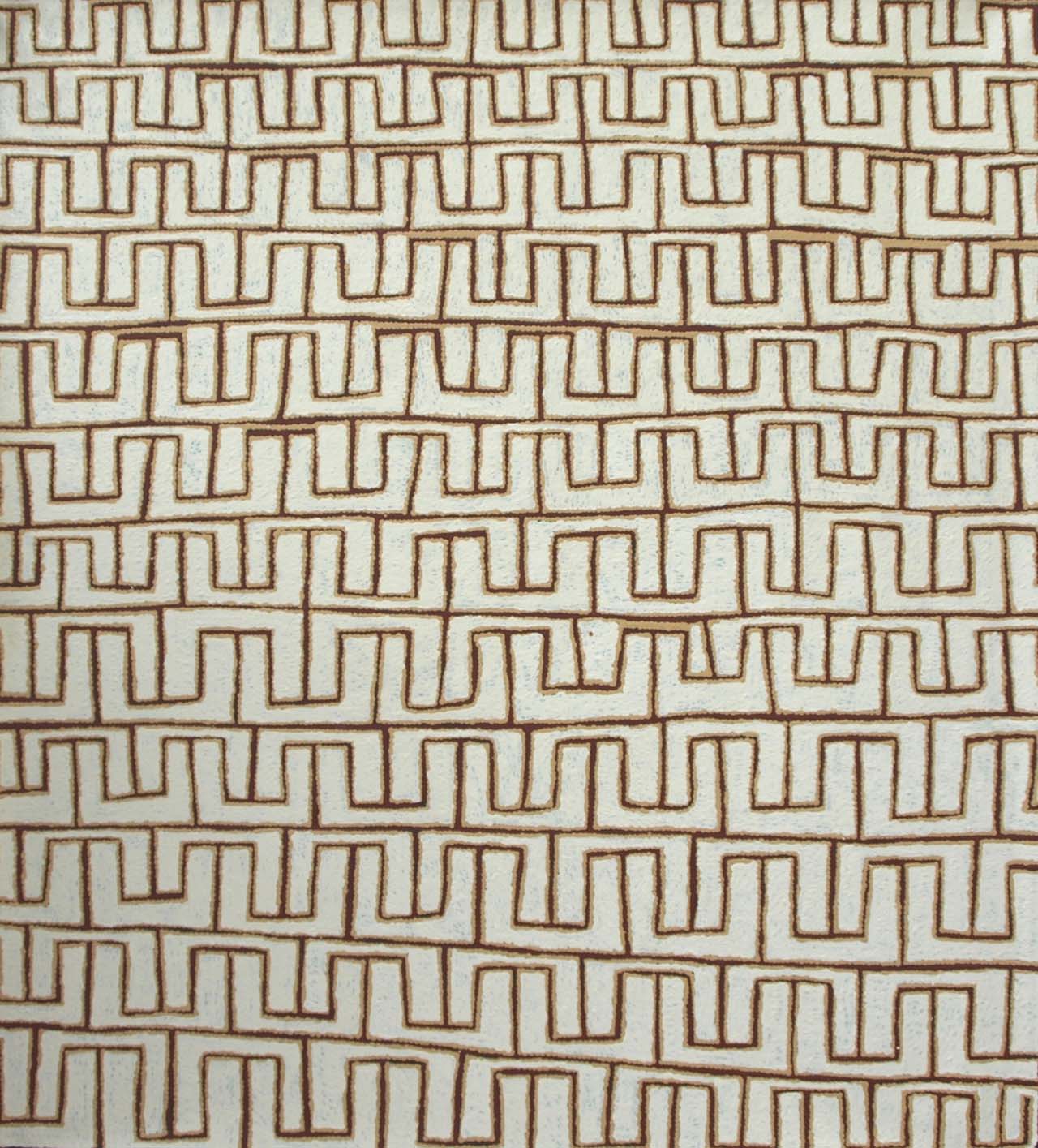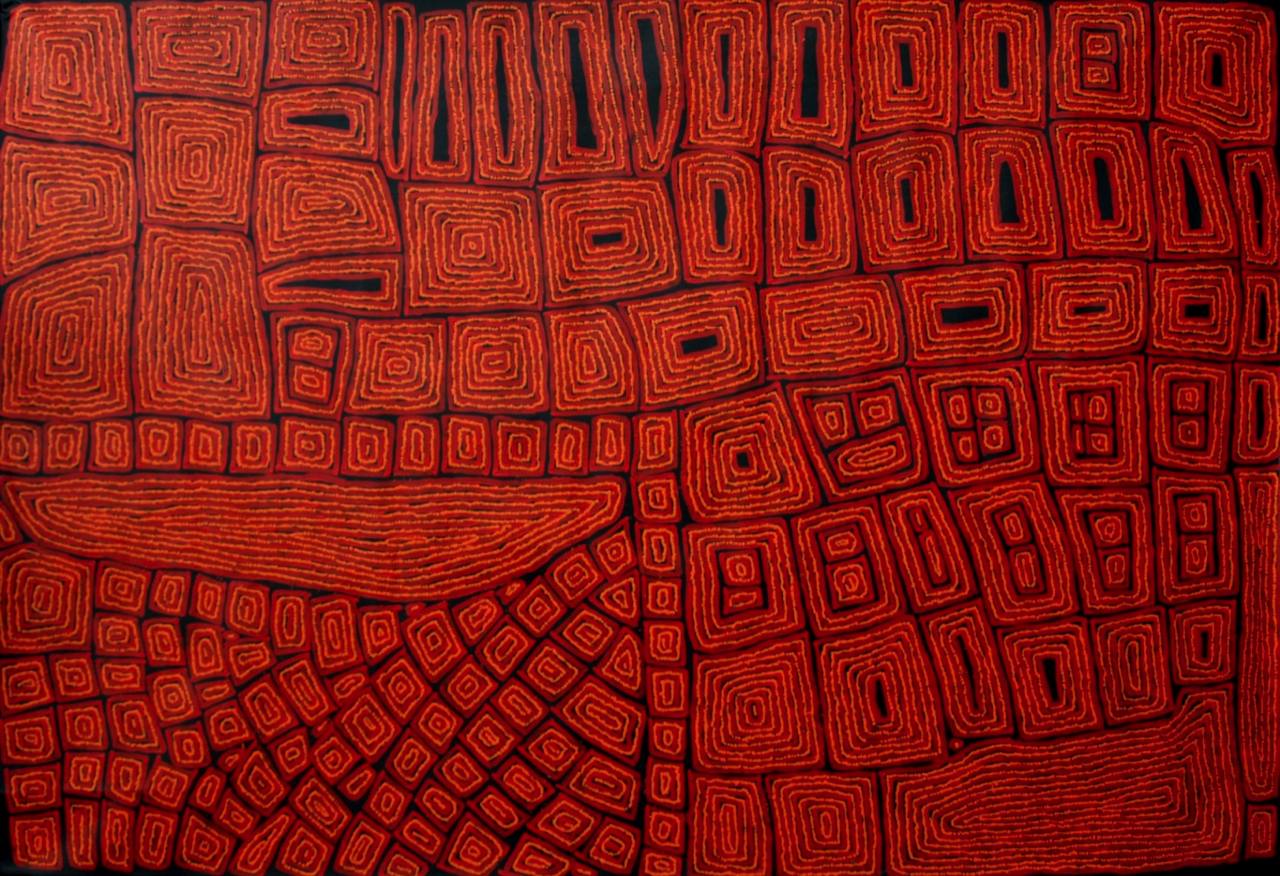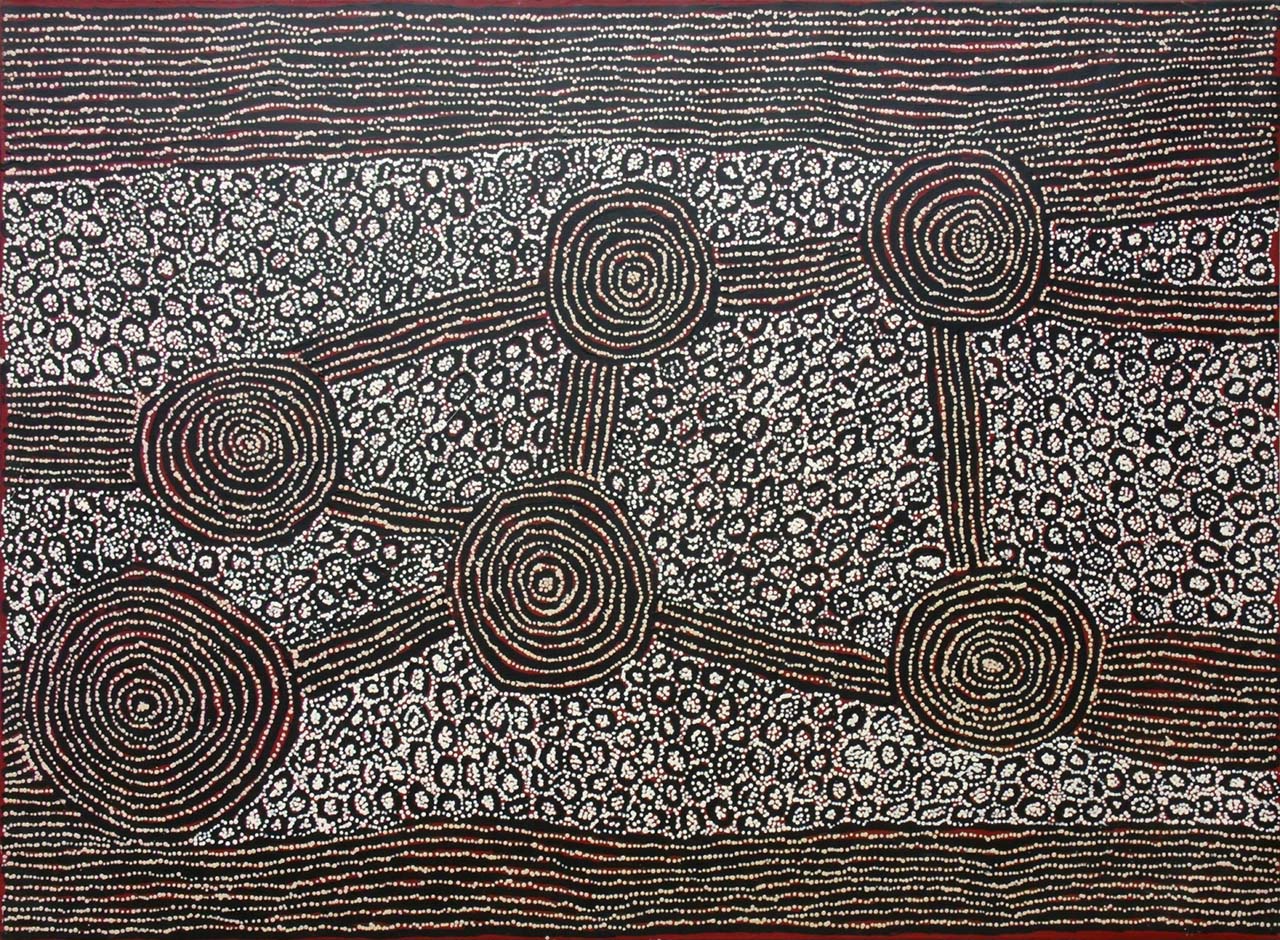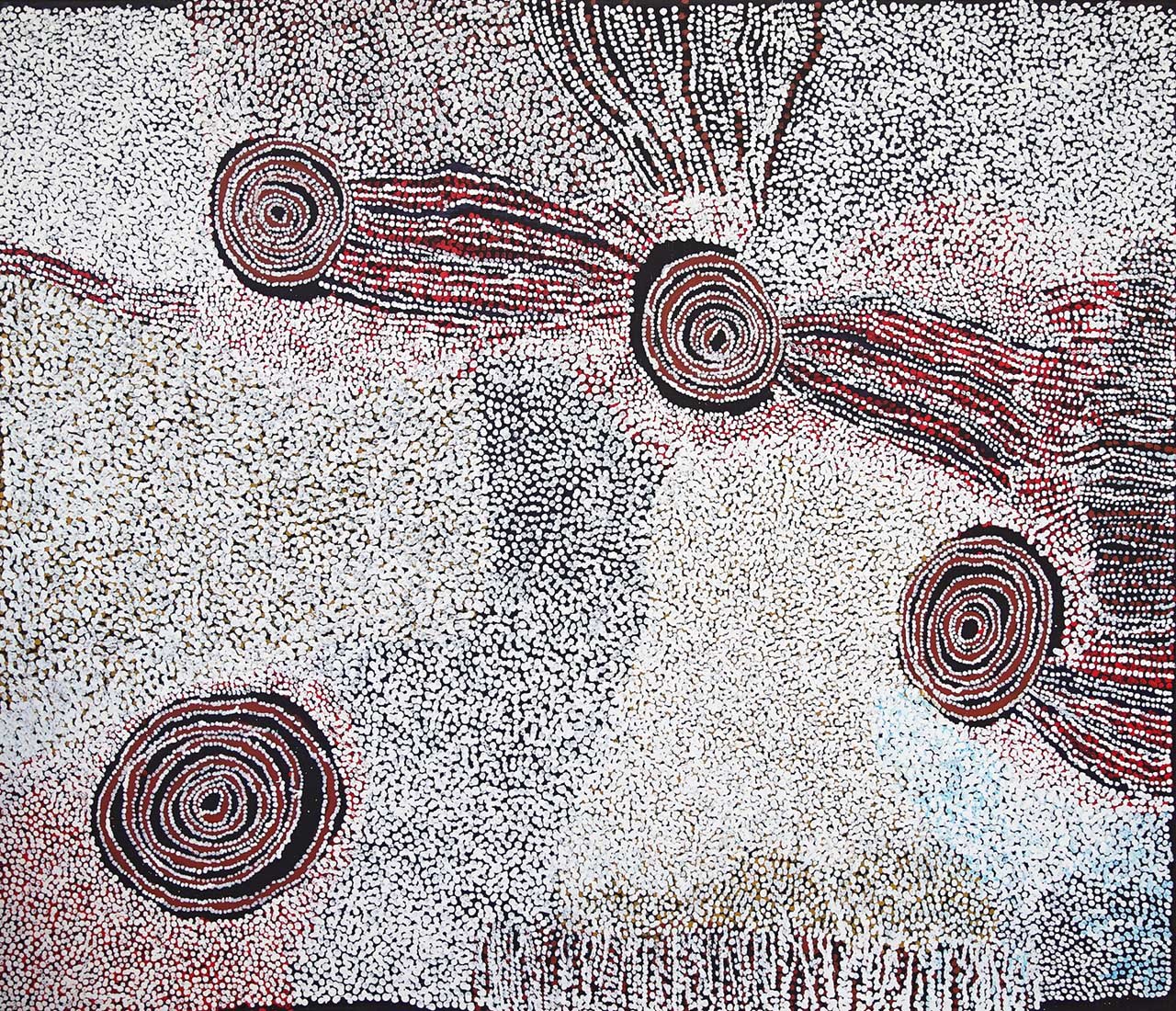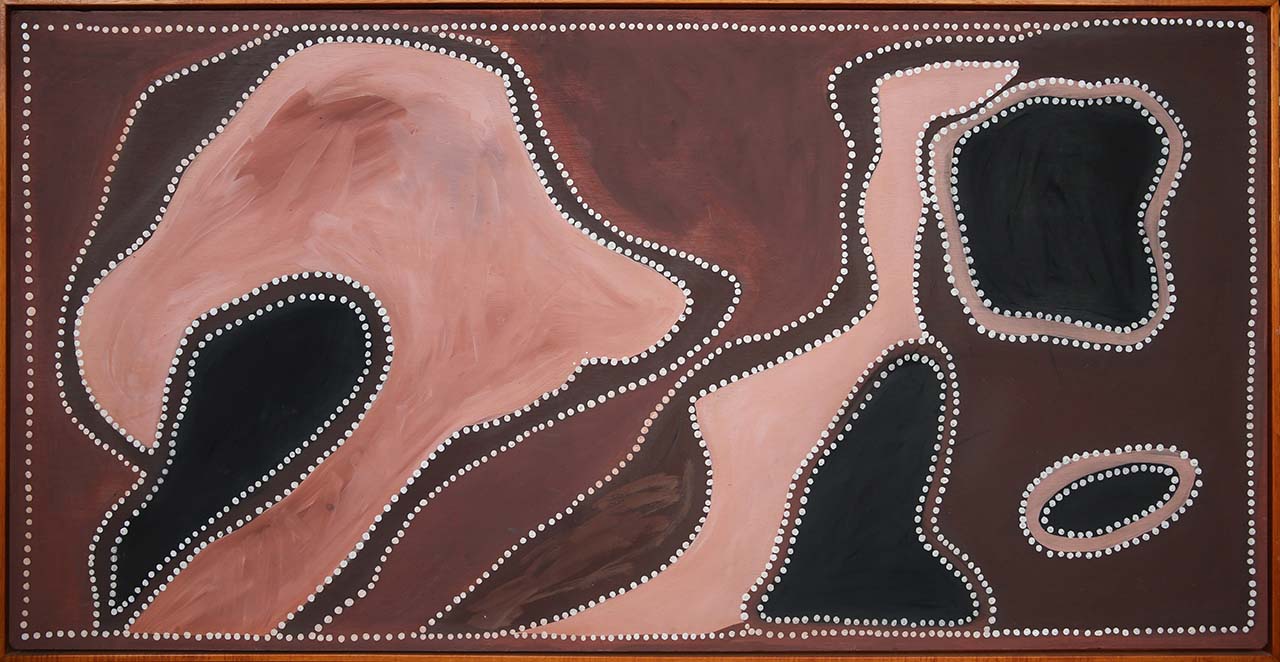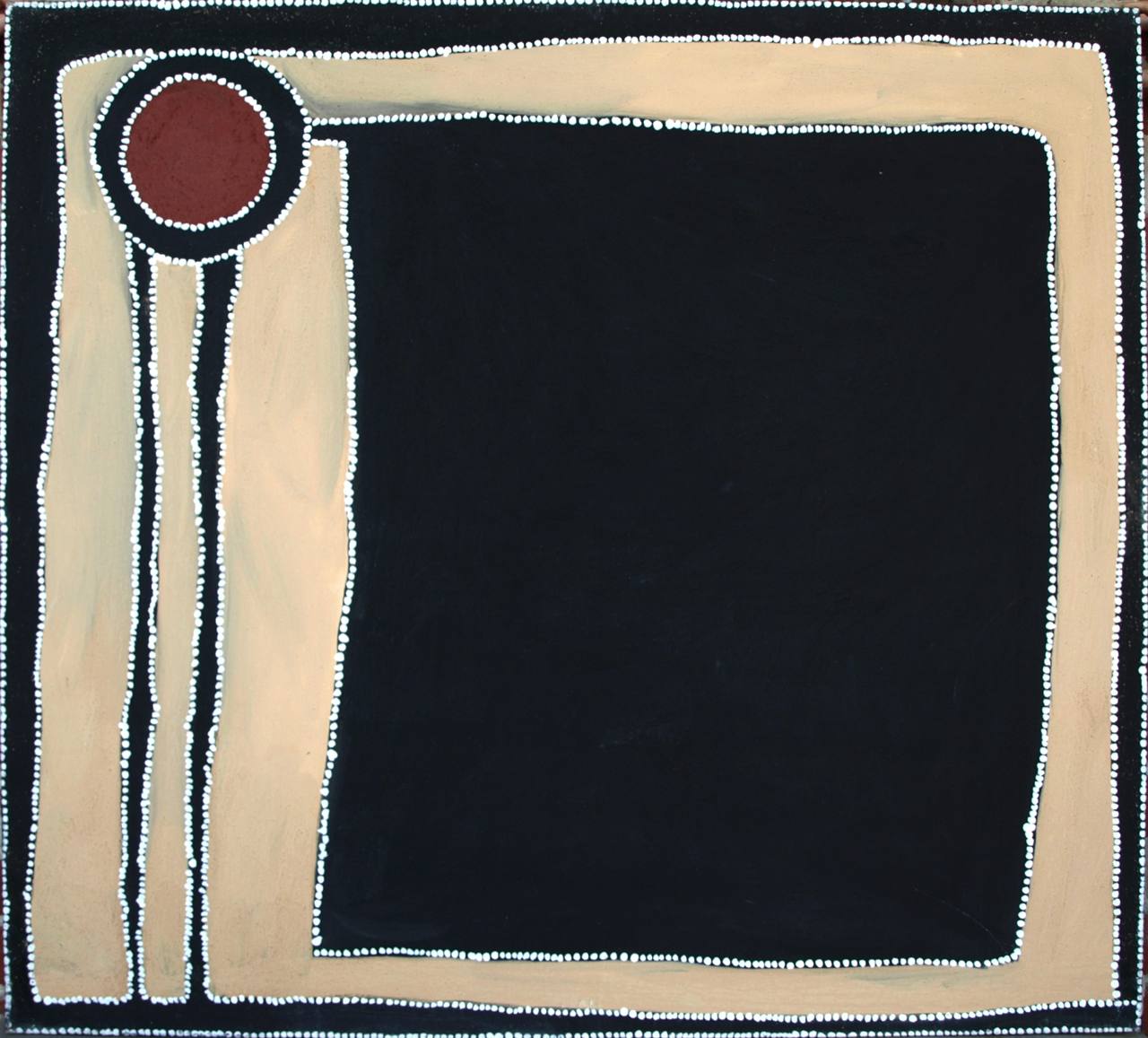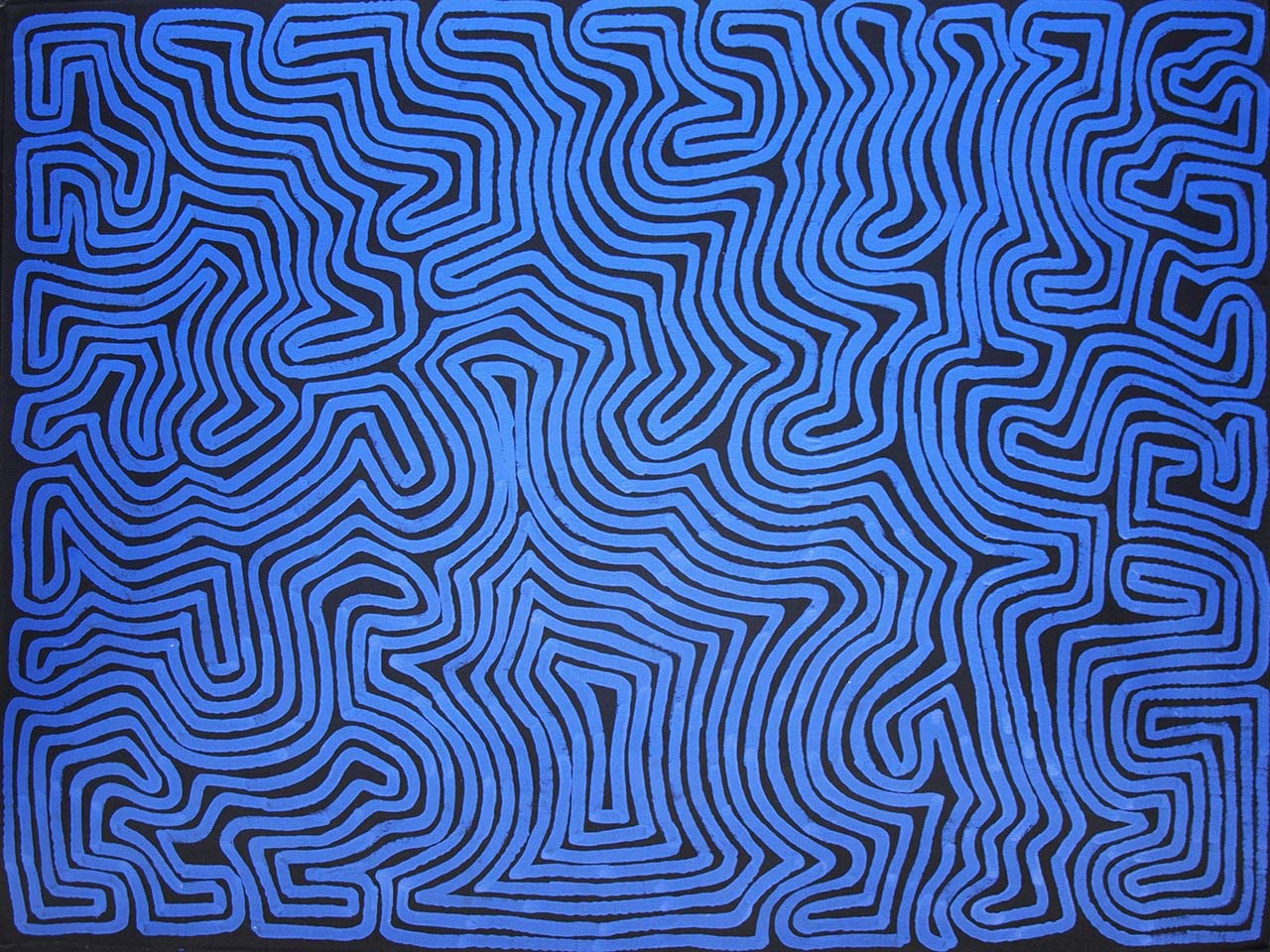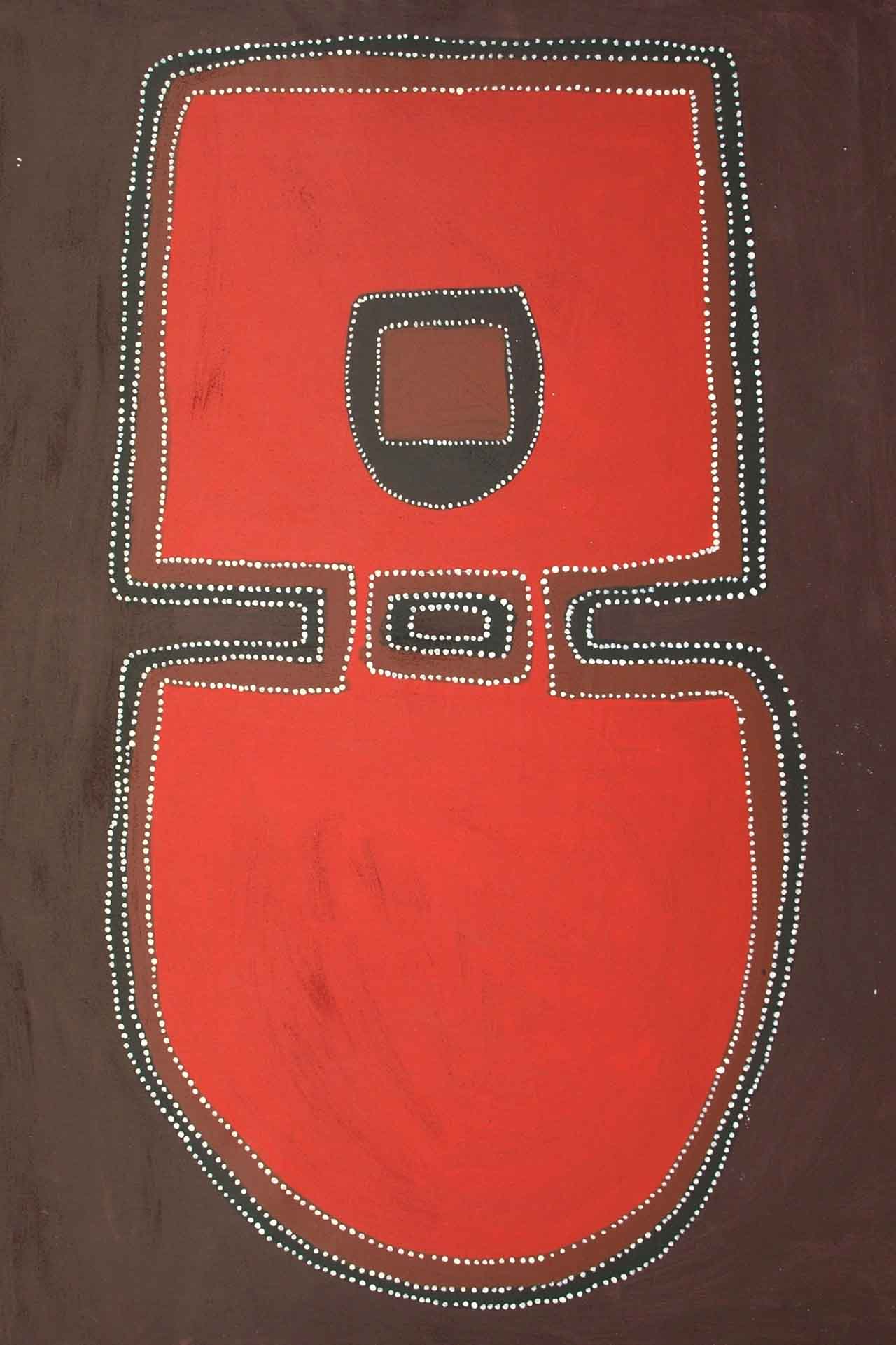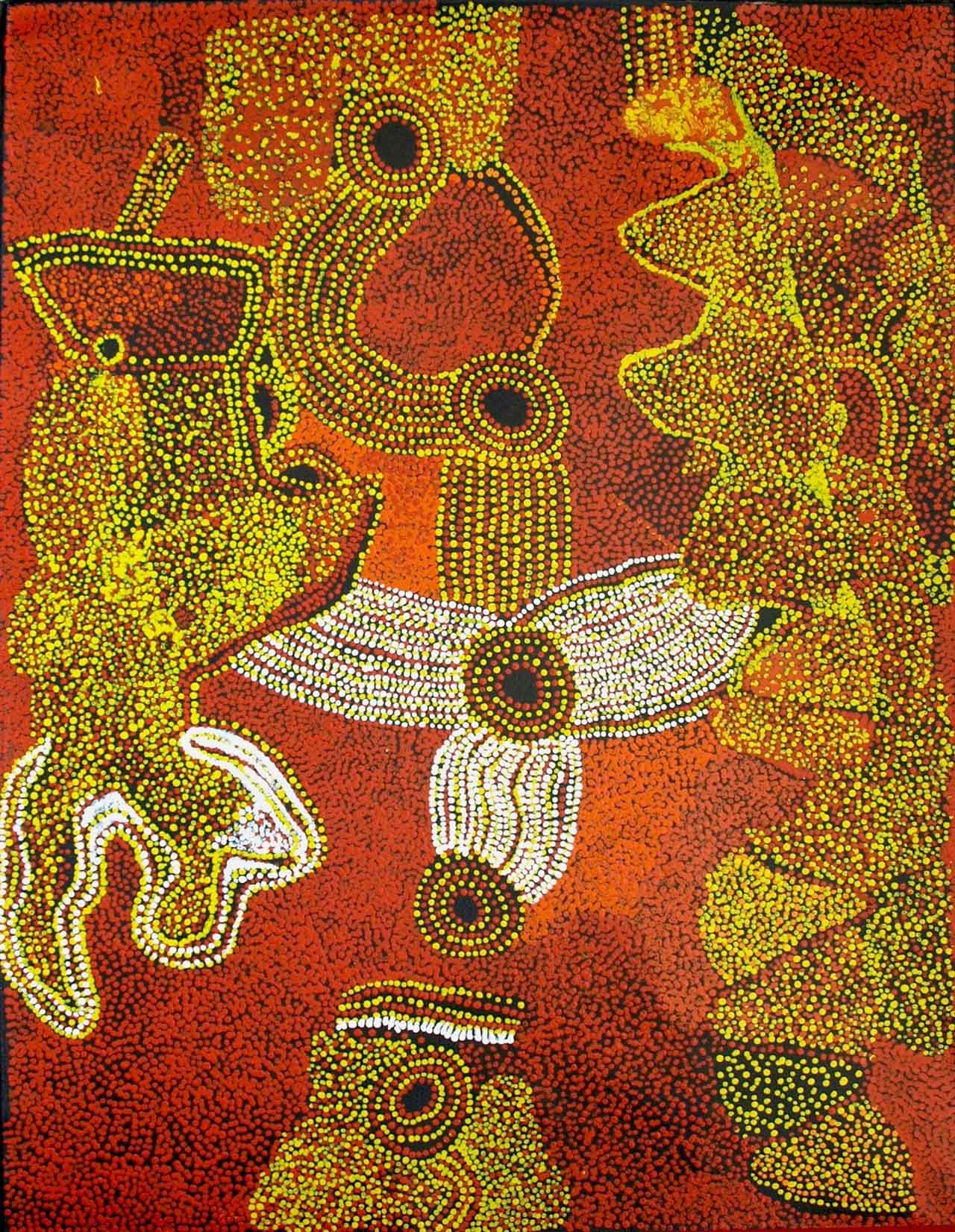Men of the Desert: Landmarks & Law Grounds Exhibition
Gallery 1
Friday April 12 at 6.30pm
When over 35 senior male artists paint the great stories of their ancestral lands, the stories are bound to be vast and impressive.
Japingka Gallery presents an exhibition of significant Men’s paintings that focus on Landmarks of identity - places and sites that mark out identity in the homelands of the artists. The locations cover sites from the north-west Kimberley to the Western and Central Deserts.
Exhibition runs from the 12 April to 22 May 2013
When three brothers Walimpirrnga, Walala and Thomas Tjapaltjarri came into the settlement of Kiwirrkurra nearly thirty years ago, with their family group of nine people, they were amongst the last to leave their Pintupi desert homelands and nomadic life in the Gibson Desert.
They had roamed the waterholes around Lake Mackay, and had lived their traditional connection to the Dreamtime sires of their ancestors. It is these ancient Pintupi Dreaming stories that the three bothers now paint, transferring onto canvas what they previously expressed by drawing in the sand and by painting their bodies for ceremonies.
Bill Whiskey Tjapaltjarri painted his story only in the last four years of his life. His paintings depict the ancestral white cockatoo Dreaming story of his birthplace, Pirupa Alka, near the Olgas in Central Australia. This is the Creation story of the landforms in Bill Whiskey’s country, at the site at Katamala Cone.
The narrative exists as an ancient Dreaming specific to the Pitjantjatjara people of the Kata Tjuta region, but it was not one which had been previously painted. It is a narrative for which Bill Whiskey devised a specific iconography, created using the general conventions of Western Desert painting. The creative output of impressive white paintings was a new chapter in a very ancient lineage.
Senior men of the Kimberley - Paddy Bedford, Rover Thomas, Paddy Jaminji, Freddie Timms, Jack Britten and Jack Dale – all grew up surrounded by the cattle station culture on the Kimberley grasslands, and lived their working lives as stockmen on the large pastoral leases around their home country. By absorbing the distinctive features of terrain, soil type and geographic markers on the land, these men later painted in ochre the large planar maps of the country that also made reference to the Ngarrangkarni or Dreaming events that took place here.
The extensive stories that underlie these profound artworks give a depth to the artistic heritage that is on show in the exhibition Landmarks and Law Grounds: Men of the Desert at Japingka Gallery until 22 May.
Read more:

